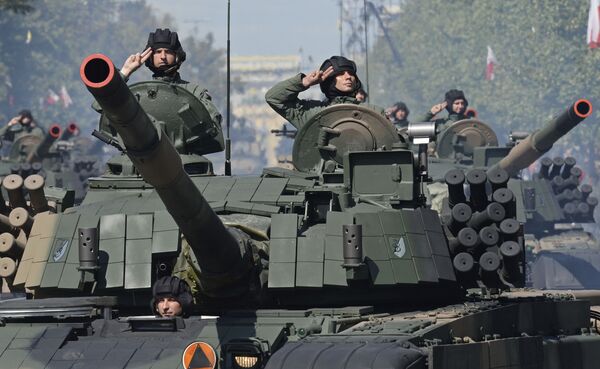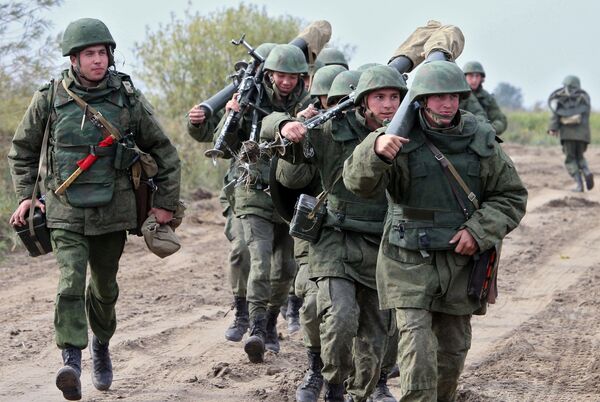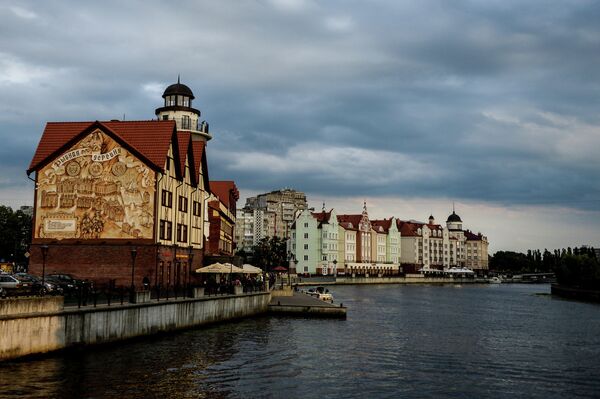R.D. Hooker Jr., a researcher at the Jamestown Foundation, a well-known Washington-based think tank with an anti-Russian bent, has published a report recommending a NATO invasion of Kaliningrad in the immediate wake of the breakout of any hostilities between Russia and the alliance.
“Dealing with Kaliningrad first is imperative,” Hooker stresses, clarifying that taking the region was key if the alliance wants to deprive Russia of local ground and air superiority, and of the Russian Baltic Fleet’s home port.
“Russian ground forces there (two motor rifle brigades and one tank regiment with artillery) are substantial, but Russian leaders should understand clearly that unprovoked aggression against NATO will come at a high price. Part of that cost must be losing Kaliningrad, a constant irritant and friction point in peacetime and a crucial strategic fulcrum – for both sides – in wartime,” the analyst writes.
Hooker notes that “Polish heavy forces, which are based nearby, along with US forces based in Poland are the obvious solutions for this mission.”

What would prompt Russia to start a war with NATO? According to Hooker, “Mother Russia” has devious plans for the Baltic region, including an alleged desire to annex the Baltic States and attack Poland to “fracture the Alliance and transform the European security environment in profound ways.”
Realising the danger of the policy he is proposing, Hooker stresses that NATO must work up “strong nerves” to invade Kaliningrad, pointing out that “Russian propaganda will trumpet the ‘sacred soil of the motherland,’ and Russian leaders will threaten nuclear retaliation.” Moscow, he writes, “cannot expect NATO to treat Kaliningrad with kid gloves” in the event of war, and suggests that “an early takeover” of the Russian exclave may very well “determine the success or failure of the initial defence.”
‘Tabloid Fantasy’
Commenting on Hooker’s recommendations, Kaliningrad region governor Anton Alikhanov called the analyst’s report a “tabloid fantasy,” and said he was sick and tired of having to “comment on American stupidities.”
“I get the sense that it’s not experts who gathered [at this think tank], but people writing pulp fiction,” Alikhanov said, speaking to Russia’s RBC newspaper on Sunday.
Hooker’s report isn’t the first time a US think tank has proposed “neutralising” Russia’s Kaliningrad in a conflict. Last month, the Russian military announced that Russia’s western exclave was fully protected “against any aggressive ‘plans’ developed by US generals” after US media reported on a Pentagon plan to defeat Russian air defences in the region.
In 2017, the RAND Corporation, another US-based think tank with Cold War roots, issued its own report on the prospects of a conflict in Kaliningrad, pondering whether Russia would even treat an attack on the exclave as ‘an attack on the Russian homeland’.
Neither report attempts to answer why Russia would risk World War III with a conventionally superior NATO foe for the sake of the Baltic republics. Russian President Vladimir Putin and Foreign Minister Sergei Lavrov have repeatedly dismissed claims of any aggressive intentions against Russia’s western neighbours, calling claims to the contrary “groundless” and “absurd.” In 2016, President Putin said he believed that “all sober-minded people who really are involved in politics” in the West understand that “the idea of a Russian threat to, for example, the Baltics, is complete madness.”

Hotspot of Tensions
Amid the deteriorating relations between NATO and Russia over the last five years, Kaliningrad has become a hotspot of tensions. On Wednesday, aircraft monitoring service PlaneRadar reported that a US B-52H strategic bomber carried out a simulated bombing of the Russian Baltic Fleet’s Kaliningrad base. Previously, Russian and NATO aircraft repeatedly encountered one another over local airspace, with one incident recent seeing a Russian Su-27 fighter literally chase away a Spanish Air Force F-18 after it approached to within several hundred meters of Defence Minister Sergei Shoigu’s passenger jet as it flew over the area.


